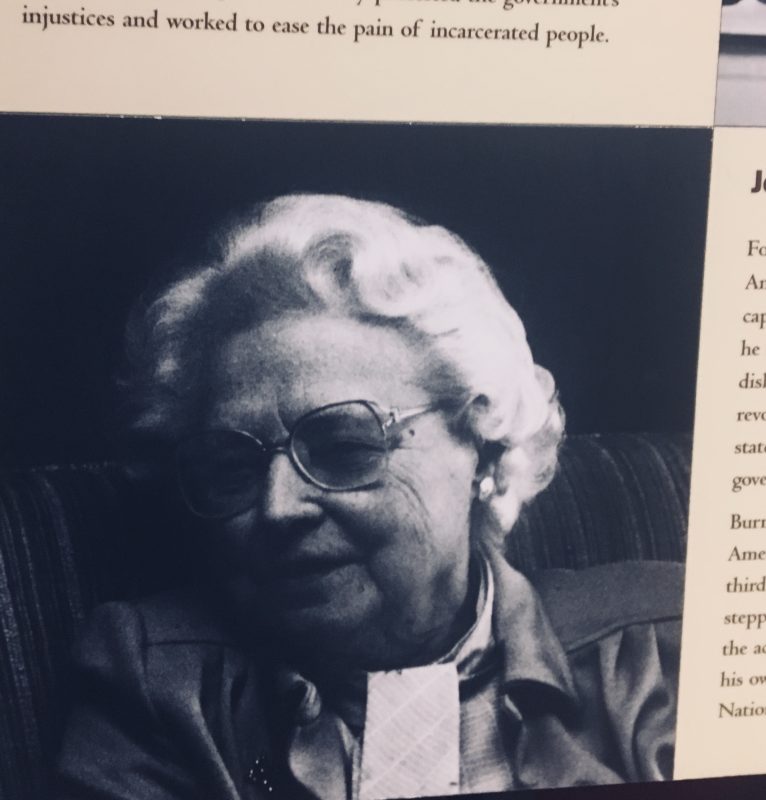“Chaos, Mr. Who,” Lupus Yonderboy said. “That is our mode and modus. That is our central kick. Your woman knows. We deal with her. Not with you, Mr. Who.” His suit had taken on a weird angular pattern of beige and pale avocado. “She needed her medical team. She’s with them. We’ll watch out for her. Everything’s fine.” He smiled again.
Neuromancer, William Gibson, 1984.
I think about chaos and entropy often. The world, you, me, the Universe, are all hurtling toward less coherent organization. Eventually we become dust, but the systems which regular our homeostasis–stability–eventually break down. Our bones get weaker. We get a cancer. The hinge on the door wears out and the door doesn’t close right anymore.
“Things fall apart” is an aphorism from a poem.
Things fall apart; the centre cannot hold;
Mere anarchy is loosed upon the world,
The blood-dimmed tide is loosed, and everywhere
The ceremony of innocence is drowned;
The best lack all conviction, while the worst
Are full of passionate intensity.
The Second Coming, W. B. Yeats, 1919.
Humans must do work to oppose entropy. We make up the bed linens of our beds in the morning if we are lucky enough to have a bed to sleep in because sleeping dirties the sheets. Our bodies slough off skin cells and oils. The dirt is imperceptible, mostly. So why make our beds? But if we leave the sheets in place long enough we will notice the entropy encroaches.
Yesterday I read the sad story of Ello, ably documented by Andy Baio in The Quiet Death of Ello’s Big Dreams. Ello had promise, though when I got my account and announced it on Twitter I quipped, darkly:
I’m on Ello. Will it be the next Friendster, MySpace, or Orkut?
https://ello.co/artlung
I’ve worked on the web and used the web long enough to see how hard it is to maintain a service. It costs money and time and effort to run servers. Part of my bleak outlook is partly that I’ve been guilty of such shutdowns. I created San Diego Bloggers and San Diego Blog and WebSanDiego which had fine runs of usefulness and meant something to their audiences. But when I moved away from San Diego I took a payday–selling the domains and sites–and those sites are gone.
On the #indieweb, site deaths are chronicled — that’s entropy.
I worked in ICUs for several years as an RT.
The above is a stylized graphic of a Siemens Servo 900c Mechanical Ventilator. From an operator’s manual.
The Servo 900c came out in 1981. Great machine. I worked with them, among others. If you’d like to look at old mechanical ventilators you can on the AARC dot org, where there’s a museum of mechanical ventilators. I enjoyed the work. I enjoyed helping patients and maintaining equipment. System checks, doublechecking everything: pressure gauges, watching the patient’s chest rise and fall and watching how that related to the system settings. Humidity, oxygen, pressure, peak pressure, volumes, temperature. Everything that could go wrong must be accounted and doublechecked constantly. “Murphy’s Law” says “anything that can go wrong will go wrong.” To counteract that, constancy is the job requirement.
So when I encounter any new thing. A technology. An idea. A guild. I implicitly make a decision about how much trust I give it. Will it work when times get tough? Will it always, always, always assure that patient needs come first? It is slightly bizarre for me to think of a place to share words and pictures like a mechanical ventilator, but I do.
I mean, words and pictures–communication–are as essential as breath. Will I trust a that new thing faithfully deliver breath of life?
I think Ello failed because it depended on financing. And the financiers expected Ello to make a certain amount of money. Ello was a machine. And that machine either could deliver on the requirement or not. Whatever sugared words the founders had about making a better web, they failed to account for the demands of their investors. And their investors did not at hear share the vision of that”better way.” Much of my own interest in the indieweb is driven by my mistrust in any particular company to keep their websites going. The site deaths page is updated regularly, supporting my distrust.
Into whatsoever houses I enter, I will enter to help the sick, and I will abstain from all intentional wrong-doing and harm, especially from abusing the bodies of man or woman, bond or free. And whatsoever I shall see or hear in the course of my profession, as well as outside my profession in my intercourse with men, if it be what should not be published abroad, I will never divulge, holding such things to be holy secrets.
Now if I carry out this oath, and break it not, may I gain for ever reputation among all men for my life and for my art; but if I break it and forswear myself, may the opposite befall me.
from a translation of the original Hippocratic oath
Google at one time took the oath “Don’t be evil.” This morning I read Tim Bray’s Mourning Google, a lament about the sad decline of Google from miracle search tool to omnipresent creepy powerhouse:
The last two decades of my career featured the arcing then crashing of popular regard for Big Tech. It’s hard to believe now, the years when those lovably nerdy Bay Area kids were leading humanity to a brighter, better-lit future; our leaders were lionized and when people found out you actually worked for Google, their eyes widened and you could feel the focus.
These days, Big Tech features in hostile congressional hearings, mass layoffs, and messy antitrust litigation. It offers few experiences that can be uncritically enjoyed. While I was inside the Rooms Where It Happened, it was actually pretty hard to notice the public trust in our work auguring into the mountainside of alienation and cynicism. It’s not that I think the companies are the problem, it’s the machineries and imperatives of Late Capitalism, which for a while we foolishly thought Internet companies could route around.
“I wish it need not have happened in my time,” said Frodo.
“So do I,” said Gandalf, “and so do all who live to see such times. But that is not for them to decide. All we have to decide is what to do with the time that is given us.”
The Fellowship of the Ring, J.R.R. Tolkien, 1954
We all take that decision daily.
It’s not easy to decide. And sometimes we must compromise about what we can do.
In September 2018 I visited the Japanese American National Museum in Little Tokyo. I was there to see a presentation on robot toys by Mark Nagata and it was wonderful.
Kelly and I toured the museum, which includes a chronicle of the internment of Japanese-Americans during World War II.
I was looking at photos from the exhibit and one of them was of a card on Clara Breed.
Clara Breed
Clara Breed was a librarian in San Diego, California in the years before World War II. Many of the library’s most faithful patrons were Japanese American school children, and Miss Breed took a particular interest in them. She admired their diligence as well as their abilities, and was outraged when she learned that they were all being sent to concentration camps in remote areas.
Throughout the war, Clara Breed sent gifts and hundreds of letters to her young friends in camp. She also spoke out and wrote letters protesting the incarceration. The Museum has many of the poignant letters to “Dear Miss Breed” which she received during this period, some of which are reproduced on the nearby desk.
Here Miss Breed represents all of the non-Japanese American teachers and friends who helped to make life more “normal” for children in the camps, who actively protested the government’s injustices and worked to ease the pain of incarcerated people.

I worked at the San Diego Public Library as a teen. Decades after she did that work. But I’m connected to her. And I feel inspired by her. She took a decision to do right. She stuck with it.
Her work is the kind of constancy that makes the world better. It’s a bulwark against entropy.
It’s worth remembering.
It’s worth thinking about what actions we might take do to oppose chaos.

four comments...
nicely done, that’s a hauntingly poetic way of tying together disparate tech writing that I was mulling over yesterday as well.
I’ve been thinking about the universe on a grand scale as well lately, probably because I’m reading a collection of short stories by Liu Cixin, author of The Three Body Problem. What fascinates me is how much the natural world has the opposite of entropy – the creation of order from chaos. Not just the evolution of life on this planet but also natural materials. The universe went from all hot plasma to cool down enough to create the first element, which then clumped together into stars that in turn pressure cooked the rest of the elements that we see today. Then those stars exploded to scatter those elements to the wind, which in turn clumped together again and so it goes on.
So the maybe the universe isn’t just decay? It’s that but that’s also a natural cycle in the rebirth of the new.
Life opposes entropy. But all things alive can be said to be in the process of dying. Whether a human who lives 100 years or a housefly of 30 days or a great redwood of 2000 years, all that lives will someday die.
very true. To take a second stab at the reversal of entropy that I was describing, it’s been inspiring to think of the universe as alive somehow and actively creating the conditions for life, rather than life forms on our planet being a sort of hold out that’s going against the grain.
Hell we’ve even seen some promising research that maybe the building blocks of life form in outer space, rather than entirely on earth alone. Not like in a scifi way like Prometheus, just individual amino acids but that’s still awesome in the original sense of the word, as @capjamesg might put it 🙂
we construct mental models as part of being human beings, how much they map to Eternal Truth is unknown to us but the doings of science can provide evidence to support or disprove those theories. And there is no harm in thinking of ourselves as made of stardust, it’s poetic and probably mostly true and may inspire us to act as though our matter matters.